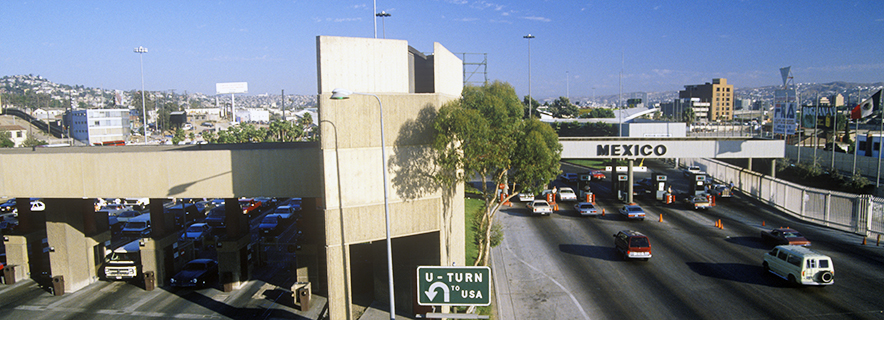
 Globalization is reshaping the world around us through the movement of people and goods across borders.
Globalization is reshaping the world around us through the movement of people and goods across borders.
PDEL projects seek to understand this process by improving the theoretical tools available to explain firm productivity and using unconventional measurement technologies to observe the process of industrialization in new ways.
Current Projects
Local Incentives and Illegal Mining: The Effect of a Royalties' Law Reform
Student Researchers: Mauricio Romero and Santiago Saavedra
Location: Colombia
The project looks at the effect of a "recentralization reform" in Colombia that reduced the share of royalties to mining municipalities from 55 to 10 percent. Theoretically, the reform could lead to an increase in illegal mining as local politicians have fewer incentives to monitor mines and ensure they comply with the law. The research team is using Landsat satellite images and machine learning algorithms in order to identify illegal mining activity.
Assessing the Migratory Patterns and Welfare Outcomes of Refugee Populations in East Africa
Student Researchers: John Porten and Michael Seese
Location: Kenya
A primary impediment to the study of refugees, their welfare, and their effects on host communities, is the lack
of accurate data on refugee populations, demographics, and migratory patterns. This project represents a preliminary step towards assembling such data. Working with a refugee settlement in eastern Kenya, researchers will assess the viability of using mobile technology to track transient populations over time and across geographic space.
Past Projects
Using High-Resolution Satellite Data to Evaluate the Impact of New Business Formation
Researchers: Gordon Hanson, Albert Lin, Jessica Block, Amanda Schochet, Velu Ganapathy, and Amit Khandelwal
Location: India
This project develops new evaluation techniques to measure the impact of new business formation on local economic development using ultra high-resolution multi-spectral satellite images. The project will be piloted in Gujarat, India, and results will provide new methods for studying the impact of rapid urbanization on socio-economic levels at a global scale.
Risk, Savings and Rural-Urban Migration in the Developing World
Researcher: David Lagakos
Location: Bangladesh
Private schools are gaining popularity in developing countries and so are government programs that provide vouchers for poor students to attend them. In India, this project measured the impact of providing vouchers to attend private schools on student learning.
The Empirical Dynamics of Comparative Advantage
Researchers: Marc Muendler and Gordon Hanson
Location: United States
As China, India and other emerging economies rise to be major economic players, comparative advantage is becoming an increasingly important driver of global trade. This project seeks to learn either about the pace at which emerging-economy export capabilities are evolving, or the forces responsible for their trade dynamism.
Land Finance and Urbanization in China
Student Researcher: Wei You
Location: China
This project examined the role of “land finance” in urbanization process in China since 1994. It makes use of the 2008 farmland “redline” policy shock to identify the importance of this system. By this policy the counties with more fertile farmland surrounding urban areas were subject to bigger shocks than other counties after 2008. The aim is to show to what degree land finance accelerates the urbanization process in China as opposed to a scenario where land finance was not used.
Faculty
David Lagakos
Department of Economics
Albert Lin
Calit2
Elizabeth Lyons
GPS
Marc Muendler
Department of Economics

